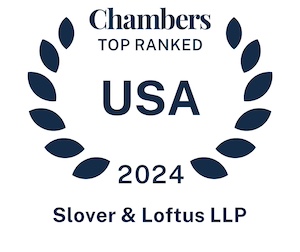Arizona Utility Wins A Major Victory Over Two Railroads in STB Rate Case
Arizona Electric Power Cooperative, Inc. (“AEPCO”) has won an important victory in a railroad rate case against two different railroads before the federal Surface Transportation Board (“STB”). In its decision, the STB granted AEPCO approximately $63 million in reparations and rate reductions. Slover & Loftus LLP represented AEPCO in the case.
AEPCO is a rural electric generation and transmission cooperative based in Arizona that burns 1 to 1.5 million tons of coal annually. In the case, Arizona Electric Power Cooperative, Inc. v. BNSF Railway Co. & Union Pacific Railroad Co., STB Docket No. 42113 (STB served November 22, 2011), AEPCO alleged that UP’s and BNSF’s tariff rates on coal traffic moving from mines in New Mexico, Wyoming, and Montana to AEPCO’s Apache Generation Station near Cochise, Arizona were unreasonably high because they exceeded the maximums permitted under the STB’s stand-alone cost (“SAC”) test. The SAC test requires a shipper to model a hypothetical stand-alone railroad (“SARR”). If the SARR’s revenues exceed its costs, the complainant shipper is entitled to rate relief. By statute, the lowest rate that the STB can prescribe is at the jurisdictional threshold, defined as 180% of variable costs. The STB usually sets the maximum rate at the higher of the jurisdictional threshold or “stand-alone cost.”
Through the evidence it submitted, AEPCO demonstrated that the stand-alone cost for AEPCO’s movements was substantially lower than the jurisdictional threshold and that it was entitled to considerable rate relief. The STB agreed with AEPCO and determined that the rates that UP and BNSF imposed on AEPCO’s traffic were unreasonably high and unlawful. Accordingly, it ordered average transportation rate reductions of 37% during a 10-year rate relief, which spans from 2009 through 2018.
Questions on this decision or on railroad rate litigation generally may be directed to Robert D. Rosenberg or any other Slover & Loftus LLP attorney.




